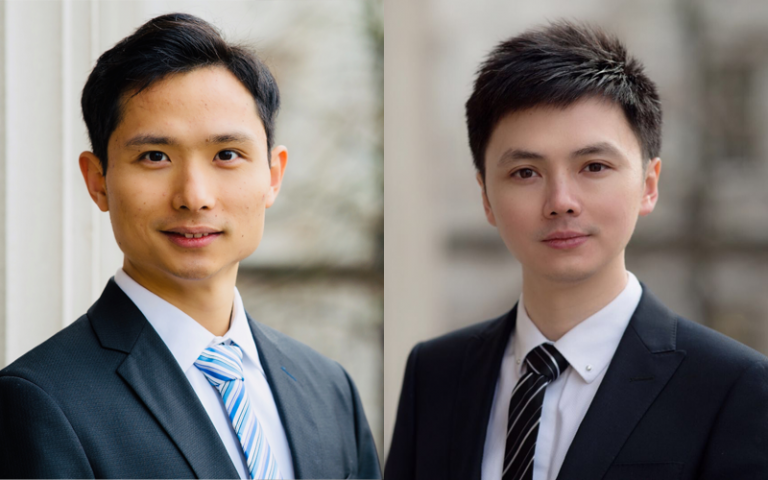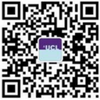Strong bonds: Dr Michael Spence in conversation with the graduates behind BRILINK
1 August 2022
Dr Michael Spence, UCL President & Provost, speaks about UCL’s global impact and his vision for the future in his first in-depth conversation with two recent graduates from China.

UCL is extremely proud of its strong links to China. With over 14,000 Chinese graduates, hundreds of alumni volunteers and eight official alumni groups (and counting), it’s one of UCL’s most expansive and dynamic alumni communities.
UCL President & Provost Dr Michael Spence has always been interested in Chinese history and culture, and he started learning Mandarin while working in Oxford. So when the opportunity arose to chat with two Chinese graduates who are making their own mark on UK-Chinese connections, he was keen to participate.
Roby Yang (MSc Strategic Management of Projects 2019) and Lewis Cheng (MSc Strategic Management of Projects 2019), both of the global consulting platform BRILINK, are passionate advocates of UCL. They have given up their time to deliver a guest lecture, and are involved with the UCL Chengdu Alumni Club and the UCL Beijing Alumni Club.
Dr Spence had previously spoken to Roby during this year’s online Lunar New Year celebrations, but this time Roby and Lewis had the opportunity to speak to the Provost about his vision for the future of UCL and its global approach to education.
Sustainability at heart
With the G7 Summit having been held in the UK in 2021, the eyes of the world have been focused on our collective commitment to environmental change. As UCL has been an important figurehead in the conversation surrounding climate change, it's crucial that we lead by example. Roby asked Dr Spence what he foresees changing in the future.
“We’re thinking a lot about how we use our endowment,” said Dr Spence. “We need to make sure that we don't invest in companies that are going to exacerbate the problem of global warming.”
Along with being free from disposable plastics and using collective innovation and research into the field more openly, Dr Spence explained that he wants the university to visibly show how it’s changing. He said: “UCL has set itself ambitious KPIs and measures for performance and we're going to be very publicly accountable against those measures. As part of this, I’m particularly proud that we've just finished building our first genuinely net carbon zero building here at UCL.”
Leading the conversation on healthcare
From breakthroughs in the treatment of Alzheimer's Disease to pioneering cancer research, UCL is known for its life-changing healthcare discoveries. Lewis wanted to explore this further. He asked Dr Spence: “When the world needed UCL to step up for the unparalleled challenge of COVID-19, you did. So what would you like to highlight about UCL’s commitment to health?”
Dr Spence said that he believes UCL has an “extraordinary opportunity” to contribute to the health space because almost everything the university does touches on health in one way or another. He continued: “I've asked our Vice-Provost (Health), David Lomas, to write a strategy that draws together our expertise from right across the university, to harvest the intellectual resources we have and take it to the NHS and beyond, to build collaboration. This ensures that it's not just that there are great treatments, but that our health systems, both here and abroad, are as effective as they possibly can be.”
Diversity and innovation
An issue that’s close to both Roby and Lewis’s hearts is diversity, and they were keen to understand UCL’s stance on embracing internationalism. On this matter, Dr Spence was clear that the university has zero tolerance to discrimination, and is a place where students from all over the world can come together to learn from each other.
He explained that UCL’s aim is to promote meaningful conversations – not just across national, ethnic or racial cultures, but across cultural identities and different socio-economic backgrounds.
“As a university in a city as diverse as London, we have a particular responsibility to model what diversity looks like,” he said. “It doesn't mean that everybody thinks the same thing, it means actually living with difference and therefore living with inevitable disagreement. With both staff and students, we promote what I'd call the epistemic virtues; that is, we teach people how to disagree well.”
Getting entrepreneurial
BRILINK received support and endorsement from UCL in its early stages, so Roby and Lewis understand the benefits of strong links back to your university. And Dr Spence described how he wants to continue to grow UCL as an environment that embraces innovation across different sectors.
“If you are an institution that really values entrepreneurial activity, then the signals you send, whether they're in staff promotion, the things you celebrate in your communications or the stories you tell, should really emphasise the fact that entrepreneurship makes a difference,” he said. “Those things are deeply important to the institution and I find that messaging to be particularly strong at UCL. I'm very keen to continue and even to grow this spirit.”
Growing Chinese-UK connections
Dr Spence said that believes there’s currently nowhere more exciting in terms of growth than the Western Pacific. In light of this, Lewis asked: “What is your main message to UCL alumni in China?”
He replied: “I'm very proud of our strong links with China's fine research universities. But more than that, it's really important that we have close people-to-people connections and our alumni in China are important bridges in that. UCL’s links with East Asia are very proud and very strong. And we want to maintain that tradition, not only with the exchange of students but also with very strong connections with our alumni as they grow and take on leadership positions in Chinese business, government and civil society.”
Stay in touch with your alumni community
- Find an alumni group near you
- Follow UCL on Weibo
- Follow UCL on WeChat:

 Close
Close





